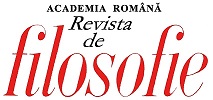Principiul cunoașterii nemijlocite și trecerea de la concepte denotative la teoria descripțiilor în filosofia timpurie a lui Bertrand Russell
The principle of acquaintance and transition from denotative concepts to theory of descriptions in Russell’s early philosophy
Author(s): Constantin StoenescuSubject(s): History of Philosophy, Epistemology, Contemporary Philosophy
Published by: Editura Academiei Române
Keywords: Russell; direct realism; knowledge by acquaintance; denotative concepts; theory of descriptions;
Summary/Abstract: Dissatisfied with Bradley’s neo-Hegelianism, Russell rebelled against idealism and adopted direct realism. During the elaboration of the works Principles of Mathematics and “On denoting” Russell tries to solve the difficulties of direct realism and to answer to the questions raised by Meinong’s luxuriant ontology. First, Russell proposes a theory of denotative concepts, then he uses the tools of logical analysis to develop the theory of descriptions from which he derives as a consequence the epistemological principle of acquaintance, already used in his previous investigations. My goal in this paper is just to reconstruct this historical evolution of young Russell from the theory of denotative concepts to the theory of descriptions.
Journal: Revista de filosofie
- Issue Year: LXIX/2022
- Issue No: 2
- Page Range: 147-157
- Page Count: 11
- Language: Romanian

